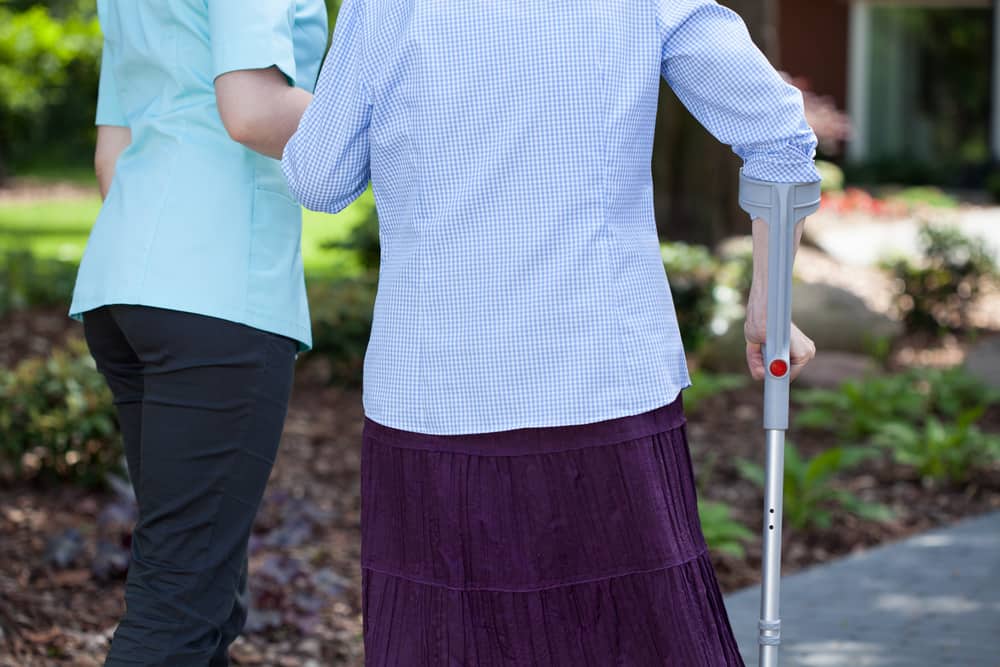Spinal stenosis is not uncommon among people 50 years and older, primarily due to wear and tear on the body over time. If you begin to experience significant neck or lower back pain then your doctor may want to assess for spinal stenosis. Treatment varies with the severity, starting with conservative approaches and then minimally invasive spine surgery in order to help avoid major spine surgery as much as possible. Your neck and back are key to supporting the rest of your body and it is important to seek treatment and relief from pain in order to move comfortably through your daily life. Something as common as your daily walk around the block might become difficult or even unbearable with spinal stenosis.
Symptoms of Spinal Stenosis
Spinal stenosis symptoms tend to get worse over time, especially without any interventions to help mitigate the degeneration. While many symptoms begin slowly and gradually, the pain may eventually become so unbearable you are unable to complete basic daily tasks like walking or sitting. Symptoms generally include experiencing numbness, tingling, a burning sensation, and even weakness in your extremities. Depending on the type of spinal stenosis you are experiencing, you may also experience significant neck pain and dysfunction in your bowel or bladder, or you may experience cramping pains in your legs and lower back.
Types of Spinal Stenosis
There are two types of spinal stenosis based on the location of the stenosis: in the neck or in the lower back. Spinal stenosis in the neck, or cervical spine, is also known as cervical spinal stenosis. Spinal stenosis in the lower back, or lumbar spine, is also known as lumbar spinal stenosis. Regardless of the type of spinal stenosis, the symptoms, causes, and treatments can be quite similar. However, the experiences and how the stenosis affects your daily life is where the similarities end. While cervical spinal stenosis affects your neck and more of your upper body and some bowel and bladder issues, lumbar spinal stenosis can affect your ability to comfortably move through your daily activities.
Causes of Spinal Stenosis
While general wear and tear on the body due to the aging process is the most common cause of spinal stenosis, there are other causes as well. Spinal stenosis occurs when the spinal column that houses your spine and nervous system begins to narrow to the point where it puts pressure on the spine and nerves. Degeneration in the discs that separate each vertebra in your spine is also a common cause of spinal stenosis. While related to general wear and tear, other injuries or problems can lead to disc degeneration, such as a herniated disc.
A herniated disc refers to when a disc that separates two vertebrae shrinks or dries out, whether due to age or an injurious accident, and can cause the two vertebrae to rub against one another. Discs are the shock absorbers for your spinal column and when they deteriorate it can cause significant pain in your back. Herniated disc injuries can appear gradually over time as you age or with a sudden injury sustained in a car accident or other traumatic injury.
Other causes of spinal stenosis can include bone spurs, thickened ligaments, and even tumors. Bone overgrowth can lead to bone spurs, where the bones may decrease the space in the spinal column. Similarly, thickened ligaments that support the vertebrae and your spinal column and help hold it together can lose elasticity and become stiff with time and age. Thickened ligaments can protrude into the spinal column and press on the spine and nerves.
Treatment Options for Spinal Stenosis
When you have been diagnosed with spinal stenosis, you and your doctor will likely want to begin with more conservative approaches to treat the pain. These types of conservative approaches can include managing the pain with medication and making some modifications to your lifestyle. Other options could include physical therapy and chiropractic care. However, when more conservative approaches are unable to address the significant ways spinal stenosis is affecting your daily life, you may want to discuss minimally invasive spine surgery options with your doctor.
Walking as exercise is a relatively low-impact activity, and when even this activity is significantly affected by your spinal stenosis symptoms then it is important to meet with your doctor. Treatment goals for spinal stenosis should include both relieving your pain and discomfort while also helping you maintain or even improve your mobility and functioning. Minimally invasive spine surgery is a way to help address all your symptoms, improve your daily functioning, all while avoiding a major spinal surgery.
Neurologists can specialize in interventional spine medicine, which is a type of medicine that uses minimally invasive spine surgery in order to address spinal stenosis and other spinal injuries and pain. At AICA Orthopedics, our team of neurologists, spine doctors, physical therapists, and chiropractors work together to find the best treatment solutions for your spinal stenosis and always take into account how it is impacting your daily life.





